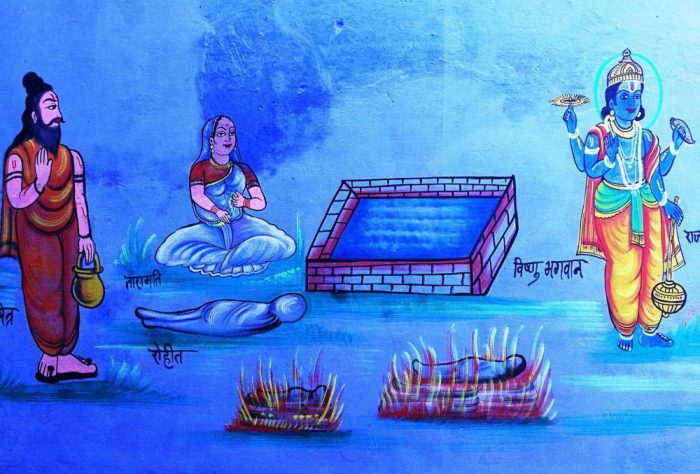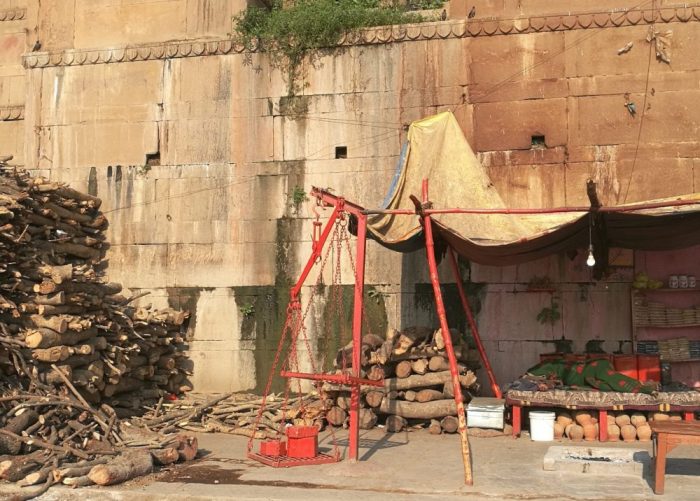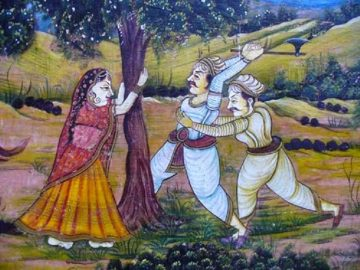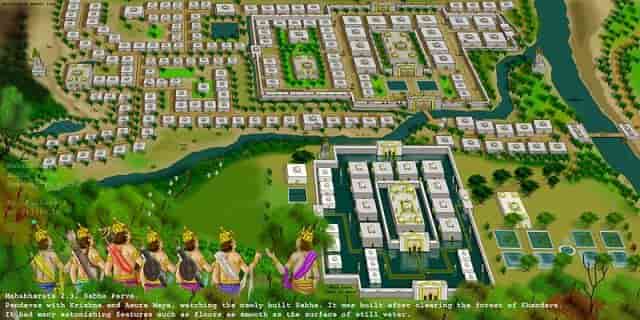Movements, Myths & Burning Business Issues!
March 27, 2018 By Hester Bergh-Appoyer No comments yet Being Nice Isn't Enough, Business Mythology, Fables, Good Governance, Intercultural Savvy, Intercutlural Competencies, Movements for Sustainability, Self Management, Success
Movements, Myths & Burning Business Issues!
I visited Varanasi a few weeks ago. As promised it proved to be 3.5 days filled with fascinating fables, informative insights, metaphors and myths and what really preoccupied me afterwards was the mindset, or philosophy around dying – before and after death. It was a deeply introspective experience that, even without actually thinking about it, forced me to reflect on my own attitude and beliefs about life, and death. My more pragmatic self did some research and found facts relating to the business of burning bodies.
Among other things, I read that this custom and practice has almost depleted India’s own forests and they are now importing the wood from neighboring countries like Nepal. Considering the pyres are burning 24/7 and an average of 50 bodies get burnt a day, that is some business! And a huge, weighty demand for wood!
An environmental activist’s nightmare and, quite frankly, a matter of life, over death! Now!
Fast forward a week or two and I am talking to one of my clients in the EU which is expanding their business borders further East mentioning Nepal as one of their new sources of wood. And I think to myself…
I get the “machinery” of business. I get what is needed to make a business run, well-oiled, efficiently and effectively to maximize profits. I personally thrive on other businesses expanding their business borders because it calls for cultural collaboration which can only be achieved through cultural understanding and clarity in communication – my business. I get that everyone wants their share (fair or not) of the economic and consumer pie and when the local market gets too small or the region has run out of resources and stock, then businesses have to move on up and out – otherwise it is death to the business! I get that.
But, how much of all of this is done in the true wisdom and understanding that some ideas, traditions and customs need to be burnt, for the benefit our children’s futures? And their children?
And, just how much of all of this is as “sustainable” as businesses envisage, intend and promise?
Let’s face it. Business is a violent business. Success can be cut throat. Does it have to be this way? Do we even have choices?
#violent – also known as destructive, brutal, cruel, murderous, powerful, coercive, forceful, fierce – characterized by a strong, rough, intense or destructive force.
“The Pandav brothers inherited a forest and wanted to build a great city to honor their king of the heavens, Indra. Krishna, in response, told them to burn the forest, burn the plants, burn the animals, the birds and the bees. The brothers were horrified at this suggestion to which Krishna once again replied, “Then, do not build a city.”
We humans have developed an insatiable hunger for things. A chaotic messy needy-ness (Black Friday?) that values things over thought, time-bound results and events over the timeless, the finite over the infinite and the limited over the limitless. We exploit people and nature which goes against our very human-e nature. This need for finite takes us with it, into our graves, or ashes.
Seldom, in the humdrum or hubbub of things do we think that we actually have a choice. We can choose.
We can choose to expand our imagination and thoughts, or we can “reduce them to ashes” so to speak.
We can choose to outgrow our human hunger, or we can indulge it.
When we choose to indulge our hunger we need to literally and figuratively “clear” forests and kill or “break in” sentient beings to turn them into beasts of labor and burden. We need to drill deeply into oceans and/or flatten mountains. And, we need to dam up flowing resources that come in natural wholesome forces.
We (think) we need to create order.
We coerce and use force to tame our environments and then proceed to tidy it up and make attractive in the name of “progress”, “employment”, “economy”, “empowerment” and so-called “good governance”. As long as we are not the victims of violence, we don’t mind being the perpetrators of violence. This is human nature.
This is also culture.
Culture is a form of domestication. The “domesticated” nature of people and their “world” is merely the different ways in which groups of humans have tamed their environment and fellow inhabitants. We pass on and take our culturally outdated and (mostly) ignorant beliefs with us – either 6 feet under the ground or, like some Indians, into what should be – but is no more – a pure, clean source of life; the Ganges.
It actually hurts to personally witness the violence of inconsiderate as well as uninformed thought being perpetuated to such an extent. No exception. We all do it.
So here some sound business questions.
- Are you really thinking in terms of sustainable sustainability practices?
- Is your corporate social responsibility (CSR) really corporate and socially responsible, or is it simply a “section” that looks good on (precious) paper?
- Is your vision statement holding the flame for healthy business for future generations?
- Are you willing to pay some thought to your role in the ongoing violence and decimation of your natural habitat and wildlife?
and,
- Are you willing to be a trailblazer and clear the way to making more humane choices?
Looking for the answer? Here’s what you can do! Take a break. Take off your shoes, go for a walk in the bush or forest or park and sit under a tree! Inhale your abundance. Listen to birdsong for 10 minutes. The answer is in there!
Wishing you a fantastic Easter and remember – having a culturally diverse team does not have to be the death of you – get support for greater clarity. Get me – I’ll be back in the EU in Autumn, 2018!
In the meantime remember to be a light, be a flame of hope, burn bright, kick some butt, be an activist to activate action and change! Be brilliant!
![]()
PS 1 – this SALT – Skills and Language Training newsletter was inspired by Devdutt Pattanaik’s Book “The Success Sutra”, the google doodle of the Chipko Movment on Monday 26th March and my reflections on my trip to Varanasi!
PS 2 – the photos are mine – the images and illustrations come from the internet and wikipedia
Search
Recent Posts
Recent Comments
- Hester Bergh-Appoyer on “I Want” and “I Will” – The Power Of (The Right) Words
- Hester Bergh-Appoyer on Brain Massages and Insights – How To See The Big Picture!
- Bennefield on “I Want” and “I Will” – The Power Of (The Right) Words
- Jolene Butler on Brain Massages and Insights – How To See The Big Picture!
- Hester Bergh-Appoyer on Goodbye Goa!
Archives
- November 2020
- January 2020
- September 2019
- May 2019
- March 2019
- August 2018
- July 2018
- May 2018
- April 2018
- March 2018
- February 2018
- January 2018
- July 2017
- June 2017
- May 2017
- March 2017
- February 2017
- January 2017
- December 2016
- October 2016
- September 2016
- August 2016
- May 2016
- January 2016
- October 2015
- June 2015
- February 2015
- January 2015
- December 2014
- September 2014
- June 2014
- May 2014
- March 2014
- February 2014
- January 2014
- December 2013
- November 2013
- October 2013
- September 2013
- June 2013
- May 2013
- April 2013







Leave A Comment